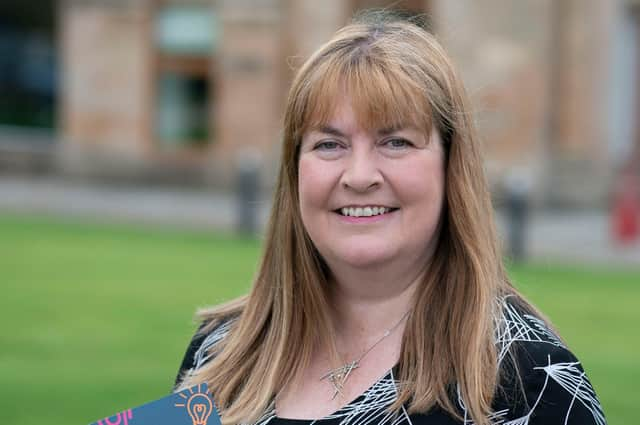Save Our Libraries: ‘Libraries should be communal living rooms for people across Scotland’


“It would be a very dark and lonely place if libraries were not at the heart of communities as we come out of Covid,” said Pamela Tulloch, the chief executive of the Scottish Library Information Council.
“The physical buildings and services that come from them have been so missed over the past 18 months.
Advertisement
Hide Ad"Libraries are and should act as communal living rooms for the people of Scotland. ”
SLIC – an advisory body to the Scottish Government – recently published Forward: Scotland's Public Library Strategy aiming to put ‘people, places and partnerships’ at the heart of its vision for libraries in Scotland between 2021 and 2025.
The strategy hopes to create a ‘clear direction’ for libraries to move beyond Covid.
Despite common perceptions of elderly people being main library users, research from 2016 by the Carnegie UK Trust, backed by the strategy, shows people who use libraries the most in Scotland are 24 – 44-year-olds; the group also most likely to seek work and support young families.
Even with the impact of the pandemic, Tulloch said this broadly remains the case today and more is being done to create community library spaces to serve them.
Although book borrowing remains a core service, many people use libraries for self-improvement and to navigate their lives in an information landscape.
Advertisement
Hide AdLibraries act as a ‘lifeline’ for many low income families in a modern world, according to Tulloch.
“Libraries are important for early years and families.
"A lot of families don’t have a lot of money so it gives them an opportunity to access this information,” Tulloch said.
Advertisement
Hide Ad“Not everyone can afford to buy their children a lot of books so they offer that service.
"For older people, they really are essential for seeking work or claiming benefits through IT services on offer at libraries.”
There are concerns in certain areas, such as Glasgow, that library closures may take place in more deprived areas, such as Maryhill and Whiteinch, impacting low income families.
Yet, SLIC’s CEO remains optimistic that closures will not take place despite ‘unique’ waits to reopen, like those for five of Glasgow’s libraries.
Last week, 61 libraries across Scotland remained closed.
However, this has now decreased to 48 with 15 libraries scheduled to reopen and reopening times across Scottish libraries extended.
Out of the 481 libraries in Scotland, 418 are currently open.
Advertisement
Hide AdAsked whether libraries in Scotland needed more funding, Tulloch said: “We need to see a sustainable model for libraries across Scotland - it’s quite chequered at the moment.”
However, she was confident SLIC’s ambitious strategy would be achieved.
Advertisement
Hide AdAfter looking at successful community library models in Scandinavia and blended digital learning in Australia, Tulloch said: “Scotland has its own identity and community.
"What will grow in Scotland will be different but draw from these approaches and that will also be different within Scotland’s own communities.”
A message from the Editor:Thank you for reading this article. We're more reliant on your support than ever as the shift in consumer habits brought about by Coronavirus impacts our advertisers.
If you haven't already, please consider supporting our trusted, fact-checked journalism by taking out a digital subscription.
Comments
Want to join the conversation? Please or to comment on this article.
